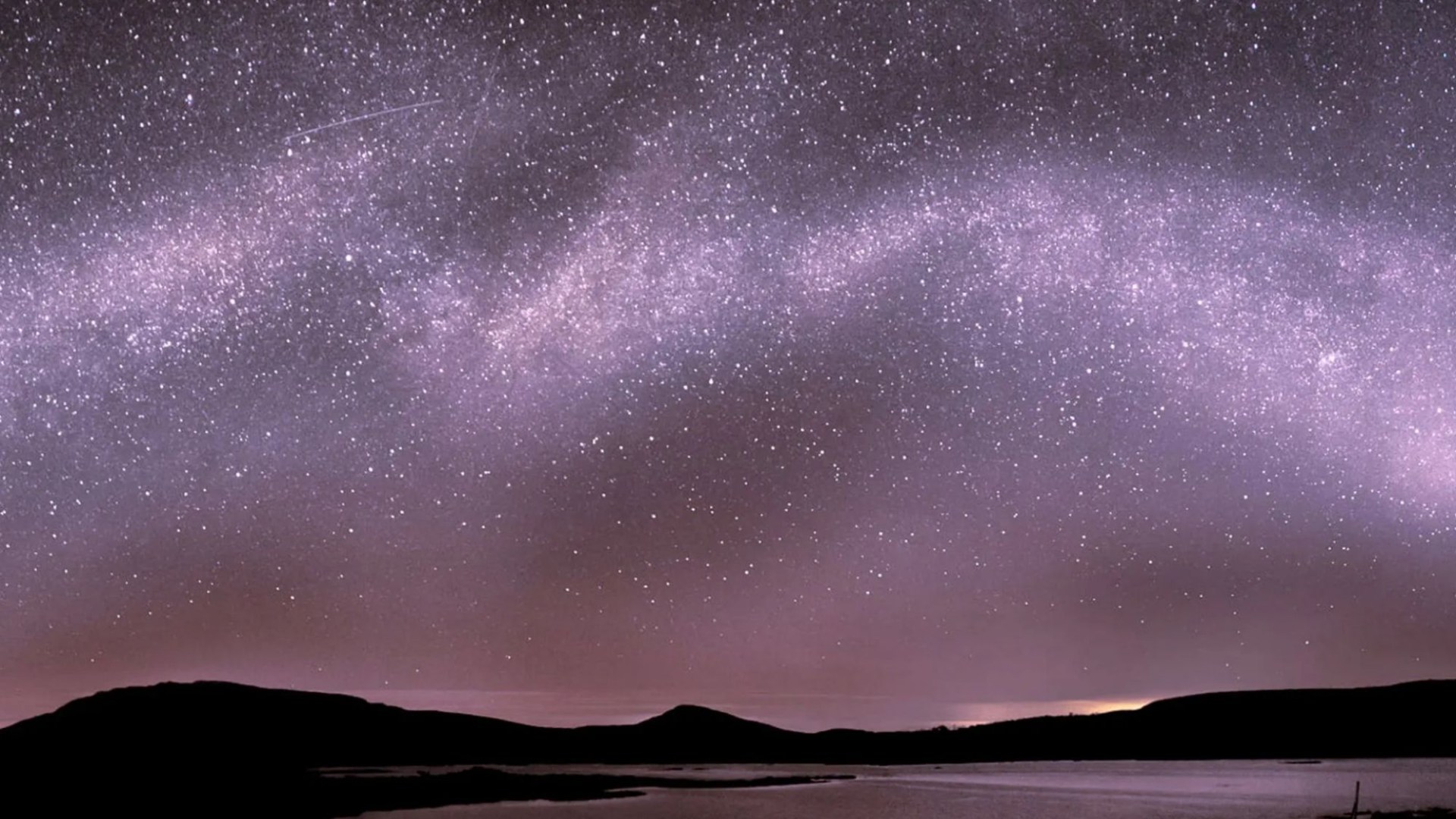Science
Stargazers Prepare for Stunning Perseid Meteor Shower Tonight

Tonight, stargazers across Ireland can anticipate a breathtaking display as the annual Perseid meteor shower reaches its peak. With predictions of up to 150 fireballs lighting up the sky every hour, this astronomical event promises to be a highlight for both amateur and seasoned astronomers alike.
The meteor shower occurs as Earth traverses the debris left by Comet Swift-Tuttle, which orbits the Sun every 20 to 200 years. This ancient comet, estimated to be over 5 billion years old, is older than Earth itself. The meteors, traveling at an impressive speed of around 58 km per second, create bright trails of light as they burn up upon entering the atmosphere.
Experts from the European Space Agency describe the spectacle as “natural fireworks,” providing an exceptional opportunity for people to witness this captivating phenomenon without the need for specialized equipment. In addition to the meteor shower, observers might also catch a glimpse of the planets Jupiter and Venus, which will appear particularly close to one another during this time.
Optimal Viewing Conditions
The best time to view the Perseids will be between midnight and 5:30 AM, when the sky is darkest. Dr. Shyam Balaji, a theoretical physicist at King’s College London, encourages viewers to look towards the northeastern part of the sky, near the constellation Perseus, to increase their chances of spotting meteors.
For those residing in urban areas, light pollution may hinder visibility. It is advisable to find a dark location away from city lights. In Dublin, Phoenix Park and Bull Island are recommended as ideal spots for optimal viewing due to their reduced light interference.
Understanding Meteors and Their Origins
To appreciate the meteor shower fully, it is helpful to understand the terminology associated with celestial objects. According to NASA, the definitions are as follows:
– **Asteroid**: A small rocky body that orbits the Sun, mostly found in the asteroid belt between Mars and Jupiter.
– **Meteoroid**: Small chunks that break off from asteroids during collisions.
– **Meteor**: A meteoroid that enters Earth’s atmosphere and vaporizes, creating a streak of light.
– **Meteorite**: A meteoroid that survives its passage through the atmosphere and lands on Earth.
– **Comet**: An object that orbits the Sun and is primarily composed of ice and gas, often developing tails of vaporized material.
When observing the meteor shower, it is crucial to find a spot with an unobstructed view of the horizon. While binoculars are not necessary and can even restrict your view, many prefer to watch with the naked eye to catch the fleeting meteors more effectively. Stargazing apps such as Sky Guide or Stellarium may enhance the experience by helping viewers identify the best regions of the sky to focus on.
As the night unfolds, both casual observers and astronomy enthusiasts will have the chance to witness one of the fastest and brightest meteor showers of the year. The Perseid meteor shower, with its dazzling display, serves as a reminder of the wonders of the universe and the beauty of our night sky.
-

 Entertainment2 weeks ago
Entertainment2 weeks agoAimee Osbourne Joins Family for Emotional Tribute to Ozzy
-

 Politics2 weeks ago
Politics2 weeks agoDanny Healy-Rae Considers Complaint After Altercation with Garda
-

 World4 weeks ago
World4 weeks agoHawaii Commemorates 80 Years Since Hiroshima Bombing with Ceremony
-

 Top Stories4 weeks ago
Top Stories4 weeks agoFianna Fáil TDs Urgently Consider Maire Geoghegan-Quinn for Presidency
-

 World4 weeks ago
World4 weeks agoGaza Aid Distribution Tragedy: 20 Killed Amid Ongoing Violence
-

 World4 weeks ago
World4 weeks agoCouple Convicted of Murdering Two-Year-Old Grandson in Wales
-

 World4 weeks ago
World4 weeks agoAristocrat Constance Marten and Partner Convicted of Infant Murder
-

 Top Stories4 weeks ago
Top Stories4 weeks agoClashes Erupt Between Far-Right Groups and Migrants in Spain
-

 Top Stories4 weeks ago
Top Stories4 weeks agoHistoric Dalkey Pub The Queens Reopens Under New Management
-

 World4 weeks ago
World4 weeks agoTrump Defends FBI Deputy Director Amid Epstein Files Controversy
-

 Business4 weeks ago
Business4 weeks agoSunshine 106.8 Boosts Irish Music After Regulator’s Request
-

 Politics4 weeks ago
Politics4 weeks agoTragic Crowd Surge at Gaza Aid Center Claims 20 Lives









